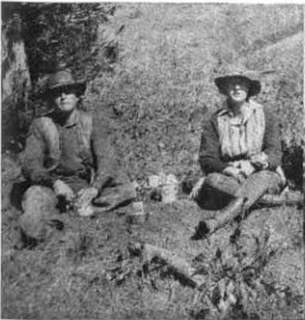A Quote by Aldo Leopold
This song of the waters is audible to every ear, but there is other music in these hills, by no means audible to all. On a still night, when the campfire is low and the Pleiades have climbed over rimrocks, sit quietly and listen, and think hard of everything you have seen and tried to understand. Then you may hear it - a vast pulsing harmony - its score inscribed on a thousand hills, its notes the lives and deaths of plants and animals, its rhythms spanning the seconds and the centuries.
Related Quotes
It's just a wonderful experience and it's fun when you make a film and people go to it to emote and in my picture you hear the audible sobbing and then you hear the audible laughter and then you see people leaving the theater with a little bit of spring in their step. It's just great to be part of one that lasts a long time.
What struck me most was the silence. It was a great silence, unlike any I have encountered on Earth, so vast and deep that I began to hear my own body: my heart beating, my blood vessels pulsing, even the rustle of my muscles moving over each other seemed audible. There were more stars in the sky than I had expected. The sky was deep black, yet at the same time bright with sunlight.
I hear it still. As I lay down my pen and take to my bed, I am aware of the bow being drawn across the bridge and the music rises into the night sky. It is far away and barely audible - but there it is! A pizzicato. Then a tremelo. The style is unmistakable. It is Sherlock Holmes who is playing. It must be. I hope with all my heart that he is playing for me . . .
The script is like music to me. I approach it like it's a musical piece and I hear how it's supposed to sound when people say the words. There's rhythms and there's intonations and things, and so, when somebody comes in and hits the notes that I hear, I go okay. Or, they come close enough, and then I'll say "Well how about you try it like this?" and if they have a good ear and they can pick it up, then I think okay, they've got it.
Sometimes Thomas Mackee will stick an earphone into my ear and ask me to listen to a song. When I get over the revulsion of putting something in my ear that's been in his, I sit back and let the music take over, and for a half hour there's something comforting about someone's heart beating at the same rhythm as mine.
When we talk of flood control, we usually think of dams and deeper river channels, to impound the waters or hurry their run-off. Yet neither is the ultimate solution, simply because floods are caused by the flow of water downhill. If the hills are wooded, that flow is checked. If there is a swamp at the foot of the hills, the swamp sponges up most of the excess water, restores some of it to the underground water supply and feeds the remainder slowly into the streams. Strip the hills, drain the boglands, and you create flood conditions inevitably. Yet that is what we have been doing for years.
And though it is most certain, that two lutes being both strung and turned to an equal pitch, and then one played upon, the other will warble a faint audible harmony in answer to the same tune: yet many will not believe there is any such thing as sympathy of souls, and I am well pleased that every reader do enjoy his own opinion.
Beside the grand history of the glaciers and their own, the mountain streams sing the history of every avalanche or earthquake and of snow, all easily recognized by the human ear, and every word evoked by the falling leaf and drinking deer, beside a thousand other facts so small and spoken by the stream in so low a voice the human ear cannot hear them.






































